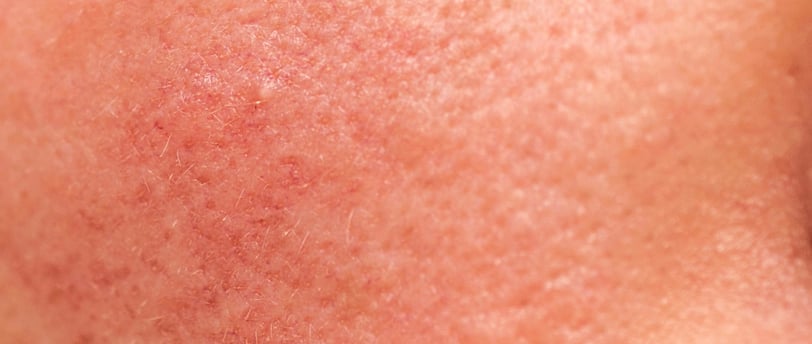Sensitive Skin: Causes, Characteristics, and Skincare Tips
Sensitive skin is a skin type that reacts easily to various triggers, often resulting in redness, itching, burning, or discomfort. While anyone can experience sensitivity from time to time, some people have skin that is naturally more reactive. Understanding what causes sensitive skin and how to care for it can help you keep your complexion calm, comfortable, and healthy.
SKIN TYPESENSITIVE


What Is Sensitive Skin?
Sensitive skin is characterized by a heightened response to factors that would not normally affect other skin types. This means the skin’s protective barrier is more easily disrupted, making it prone to irritation from environmental factors, skincare products, or even stress. Sensitive skin can appear on the face, body, or both, and can be a lifelong trait or develop over time.
Common Causes of Sensitive Skin
Sensitive skin can be triggered by many things, including:
Genetics, which play a significant role in how reactive your skin is.
Environmental factors such as wind, cold, heat, sun exposure, or pollution can make the skin more sensitive.
Skincare products with fragrances, alcohol, or harsh chemicals can cause stinging or redness.
Allergic reactions to certain ingredients in cosmetics, detergents, or fabrics can provoke sensitivity.
Underlying skin conditions like eczema, rosacea, or dermatitis often make skin more sensitive.
Hormonal changes, stress, and lack of sleep can also increase skin’s reactivity.
How to Recognize Sensitive Skin
Sensitive skin often shows:
Redness or flushing, especially after using new products or exposure to weather changes
Burning, stinging, or itching sensations
Dryness, tightness, or flakiness
Visible capillaries or small bumps
A tendency to react quickly to skincare or environmental changes
The Pros and Cons of Sensitive Skin
Benefits:
People with sensitive skin are usually more mindful about their skincare choices, often opting for gentle and natural products. This awareness can lead to a more minimalist and thoughtful skincare routine.
Challenges:
Sensitive skin is more prone to irritation, making it harder to find suitable products.
It can react to weather, stress, and even water, leading to frequent discomfort.
There is a higher risk of developing allergies or chronic skin conditions.
Skincare Tips for Sensitive Skin
Use fragrance-free, gentle cleansers and moisturizers formulated for sensitive skin.
Look for soothing ingredients like aloe vera, chamomile, oat extract, and ceramides.
Avoid harsh exfoliants, alcohol-based products, and strong active ingredients.
Always patch-test new products before full application.
Protect your skin from the sun with a mineral sunscreen and wear protective clothing when outdoors.
Keep your skincare routine simple and avoid using too many new products at once.
When to See a Dermatologist
If your sensitive skin is persistently red, irritated, or painful, or if you suspect an underlying skin condition, consult a dermatologist. They can help identify triggers and recommend a tailored care plan.
Sensitive skin may require extra care, but with the right approach, you can keep your complexion calm, comfortable, and resilient. By understanding your skin’s needs and choosing gentle, protective products, you can enjoy healthy, beautiful skin every day.
